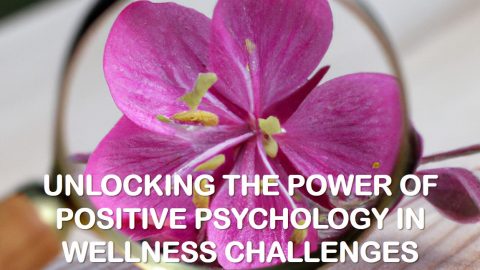Introduction
Self-care has become a buzzword in recent years, with countless articles and social media posts urging us to prioritize our well-being. But despite our best intentions, many of us find ourselves stuck in a cycle of failed self-care attempts. So why is it so difficult to take care of ourselves effectively? In this article, we will explore the hard truth behind why your self-care attempts keep failing.
Defining Self-Care and Its Significance
Self-care encompasses activities that promote physical, mental, and emotional well-being. It involves taking deliberate actions to nurture and replenish ourselves, ultimately leading to increased life satisfaction. The importance of self-care cannot be overstated. It allows us to recharge, manage stress levels, and maintain a healthy work-life balance.
Common Difficulties and Obstacles
Despite understanding the significance of self-care, we often struggle to make it a priority in our lives. We face numerous challenges that hinder our ability to practice effective self-care. These obstacles can include:
Lack of time
Our busy schedules and commitments leave little room for self-care.
Guilt and societal expectations
We may feel guilty for prioritizing ourselves over others or succumb to societal pressures that value productivity above personal well-being.
Lack of knowledge or resources
Many people are unaware of effective self-care strategies or lack the resources necessary to implement them.
These difficulties can create a vicious cycle where our self-care attempts fall short, leading to frustration and further neglect of our well-being.
In the following sections, we will delve deeper into the complexities of self-care and explore practical strategies for overcoming these challenges. By understanding the multidimensional nature of self-care and addressing the underlying barriers to success, you can break free from this cycle and cultivate a sustainable self-care routine.
The Complexities of Self-Care: Understanding Its Multidimensional Nature
Self-care is a comprehensive concept that encompasses various aspects of our lives, including our mental, physical, and social well-being. It goes beyond simply pampering ourselves or indulging in occasional treats; it is a holistic approach to maintaining overall well-being.
What is Self-Care?
When we talk about self-care, we are not just referring to taking care of our physical health by eating well and exercising regularly. While these are important components, self-care also involves nurturing our mental health by managing stress, practicing mindfulness, and engaging in activities that bring us joy and fulfillment. Additionally, self-care extends to our social health, which involves cultivating meaningful relationships, setting boundaries, and creating a supportive network.
The Impact of Self-Care on Life Satisfaction
The relationship between self-care practices and overall life satisfaction is intricate. When we prioritize self-care in all its dimensions, we are better equipped to handle the challenges life throws at us. Taking care of ourselves physically, mentally, and socially enhances our resilience and helps us navigate stress more effectively. It allows us to show up as our best selves in our relationships, pursue our goals with clarity and focus, and experience a greater sense of fulfillment in our lives.
Embracing Personalized Self-Care
It is important to recognize that self-care is not a one-size-fits-all solution. What works for one person may not work for another. Each individual has unique needs and preferences when it comes to self-care practices. It is essential to explore different activities and strategies to find what resonates with us personally.
What’s Next?
In the next sections of this article, we will delve deeper into:
- The specific challenges individuals face in prioritizing self-care in different areas of their lives.
- The role of personal values and beliefs in sustaining a self-care routine.
- The influence of societal expectations on our ability to prioritize our well-being.
We will also discuss practical strategies for overcoming obstacles and embracing self-care as a transformative act of self-love and liberation.
1. Identifying Key Challenges in Prioritizing Self-Care
When it comes to prioritizing self-care, many individuals face significant challenges in various areas of their lives. Let’s take a closer look at some specific aspects where people often struggle to make self-care a priority:
Relationships
Maintaining healthy and fulfilling relationships requires time and effort, which can sometimes overshadow the need for self-care. Individuals may feel guilty or selfish for taking time away from their loved ones to focus on themselves. However, neglecting self-care can lead to emotional burnout and strain within relationships. It’s essential to strike a balance between nurturing relationships and taking care of oneself.
Career
The demands of a busy career can easily consume one’s time and energy, leaving little room for self-care activities. Long work hours, deadlines, and the pressure to succeed can make it challenging to prioritize personal well-being. However, neglecting self-care in the pursuit of professional goals can lead to increased stress levels and decreased job satisfaction. It’s crucial to recognize that taking care of yourself actually enhances your productivity and overall success in the long run.
Physical Health
Regular exercise, a balanced diet, and sufficient sleep are vital components of self-care. However, many individuals struggle to prioritize these aspects due to various reasons such as lack of motivation, busy schedules, or feeling overwhelmed by other responsibilities. Neglecting physical health can negatively impact overall well-being, leading to decreased energy levels and increased susceptibility to illness.
Lack of Time Dilemma
One common obstacle that prevents people from prioritizing self-care is the perceived lack of time. Many individuals feel overwhelmed by their daily obligations and find it challenging to carve out dedicated time for self-care activities. However, it’s important to remember that self-care doesn’t have to be time-consuming; even small moments of self-reflection or engaging in activities you enjoy can make a significant difference.
To overcome the lack of time dilemma, here are some practical tips:
- Schedule self-care: Treat self-care activities as non-negotiable appointments in your calendar.
- Prioritize and delegate: Identify less essential tasks that can be delegated or eliminated to create more time for self-care.
- Break it down: Instead of trying to find large chunks of time, focus on incorporating small self-care activities throughout your day.
- Combine activities: Look for ways to combine self-care with other daily tasks. For example, listen to an audiobook or a podcast while exercising or practice mindfulness while doing household chores.
By addressing these key challenges and finding practical solutions, individuals can begin to prioritize self-care and experience the benefits it brings to their overall well-being.
2. The Role of Personal Values and Beliefs in Nurturing a Sustainable Self-Care Routine
Discover how aligning self-care practices with your core values and incorporating enjoyable hobbies can improve their effectiveness and longevity.
When it comes to nurturing a sustainable self-care routine, it’s essential to align your self-care activities with your personal values and beliefs. This means choosing activities that resonate with what matters most to you. Why is this important? Because when your self-care practices are in line with your values, they become more than just temporary fixes – they become integral parts of your life.
Aligning Self-Care with Your Values
So, how do you go about aligning your self-care with your values? Here are a few steps you can take:
- Identify Your Values: Take some time to reflect on what truly matters to you. Is it spending time with loved ones? Taking care of the environment? Helping others? Write down your core values.
- Connect Your Values to Activities: Once you have a list of your values, think about how you can incorporate them into your self-care routine. For example, if one of your values is “connection,” you might prioritize activities that allow you to connect with yourself or others, such as journaling or having meaningful conversations.
- Experiment and Adapt: Remember that self-care is a personal journey, and what works for others may not work for you. Be open to trying different activities and adjusting your routine as needed.
The Power of Enjoyable Hobbies
Another way to make your self-care routine more sustainable is by integrating enjoyable hobbies into it. Hobbies are not just a way to pass the time – they can also be powerful tools for relaxation, creativity, and personal growth.
Here are a few benefits of incorporating hobbies into your self-care:
- Stress Relief: Engaging in activities you enjoy can help reduce stress and promote a sense of calm.
- Flow State: Hobbies often involve focused attention and a state of flow, where you lose track of time and fully immerse yourself in the present moment.
- Self-Expression: Hobbies allow you to express yourself in unique ways, whether it’s through painting, writing, dancing, or any other creative outlet.
- Joy and Fulfillment: Simply put, doing things you love brings happiness and fulfillment into your life.
Finding the Right Hobbies for You
If you’re not sure where to start with hobbies, here are a few questions to guide you:
- What Did You Enjoy as a Child? Think back to your childhood – what activities brought you joy? Sometimes, reconnecting with these childhood passions can reignite a sense of playfulness and wonder.
- What Sparks Your Curiosity? Is there something you’ve always wanted to learn or explore? It could be photography, cooking, gardening, or any other subject that piques your interest.
- What Makes You Lose Track of Time? Pay attention to activities that captivate your attention and make you forget about everything else. These moments of “flow” are indicators of hobbies that truly resonate with you.
Remember, self-care is not just about bubble baths and face masks (although those can be part of it too!). It’s about taking intentional actions that nurture your well-being on multiple levels – physical, mental, emotional, and spiritual.
By aligning your self-care practices with your core values and incorporating enjoyable hobbies into your routine, you create a sustainable foundation for self-care that goes beyond surface-level indulgence. So go ahead, explore new activities, rediscover old passions, and make self-care an integral part of your everyday life.
3. Breaking Free from Societal Expectations: Embracing Self-Care as a Radical Act of Liberation
Societal norms and expectations often shape our perceptions of self-care, influencing our ability to prioritize it effectively. The pressure to constantly perform and meet external standards can lead to neglecting our own well-being. Here are some key points to consider:
Identifying Societal Pressures
Explore the impact of societal expectations on your self-care practices. Are there specific standards or norms that you feel compelled to adhere to, even at the expense of your well-being? Recognizing these influences is the first step towards reclaiming autonomy over your self-care.
Resisting External Pressures
Discuss strategies for resisting societal pressures that hinder your self-care efforts. This could involve setting boundaries, challenging traditional notions of productivity, and embracing activities that nurture your holistic well-being. By consciously defying societal expectations, you can liberate yourself from the cycle of neglect and prioritize self-care as a radical act of empowerment.
By acknowledging and challenging societal expectations, you can redefine self-care on your own terms, fostering a sense of liberation and authenticity in your well-being journey.
4. Navigating the Financial Realities of Self-Care: On Wealth, Resourcefulness, and Inner Abundance
When it comes to self-care, many people believe that financial resources play a crucial role. They assume that only those with ample wealth can truly prioritize their well-being. However, the relationship between money and happiness is more complex than it may seem. Let’s explore the intricate dynamics of navigating the financial realities of self-care.
True Well-Being Goes Beyond Material Means
While certain self-care activities may require financial investment, true well-being goes beyond material means. It’s important to remember that self-care is not solely about indulging in expensive spa treatments or lavish vacations. It encompasses a wide range of practices that can be tailored to fit any budget.
Practicing Affordable Self-Care through Resourcefulness
Resourcefulness is key when it comes to practicing affordable self-care. There are numerous low-cost or free activities that can have a significant impact on your well-being. For example:
- Taking a walk in nature
- Engaging in creative hobbies like painting or writing
- Practicing mindfulness or meditation
- Trying out new recipes at home
Cultivating Inner Abundance for Lasting Happiness
Inner abundance refers to cultivating a mindset of gratitude and contentment with what you already have. It involves recognizing that true happiness does not come from material possessions but rather from a sense of fulfillment and connection. By focusing on the things that truly matter in life, such as meaningful relationships and personal growth, you can find joy and satisfaction regardless of your financial situation.
Navigating the financial realities of self-care requires a shift in perspective. Instead of viewing it as an expense, consider it an investment in your overall well-being. Remember that self-care is not about conforming to societal expectations or spending exorbitant amounts of money. It’s about prioritizing your own needs and finding ways to nurture yourself within your means.
So whether you’re working with a limited budget or have more financial freedom, there are always opportunities for self-care. By embracing resourcefulness and cultivating inner abundance, you can create a sustainable self-care routine that brings you genuine happiness and fulfillment.
Seeking Supportive Structures: The Power of Community and Professional Guidance in Sustaining Self-Care
In the journey towards sustainable self-care, personal relationships and supportive structures play a crucial role. Cultivating a network of individuals who understand and value your commitment to self-care can provide the necessary accountability and encouragement to maintain your self-care routine. Additionally, seeking professional guidance, such as therapy or counseling, can address underlying barriers that may be impeding your success in prioritizing self-care.
Importance of Supportive Network
Surrounding yourself with individuals who support and encourage your self-care efforts can create a positive environment for growth. These individuals can include friends, family members, or even online communities who share similar goals. By sharing your challenges and successes with them, you can gain valuable insights, motivation, and guidance to sustain your self-care routine.
Accountability Partners
Having an accountability partner or joining a support group can be invaluable in maintaining consistency in practicing self-care. By regularly checking in with someone who shares similar goals, you can hold each other accountable and offer support during challenging times. This mutual commitment helps prevent slippage back into old habits and ensures that self-care remains a priority.
Therapy or Counseling
Sometimes, underlying emotional or psychological barriers may hinder our ability to prioritize self-care effectively. Seeking professional guidance through therapy or counseling can provide valuable insights into these barriers and equip you with tools to overcome them. A therapist can help you explore any deep-seated beliefs or traumas that may be holding you back from fully embracing self-care. They can also support you in developing coping mechanisms to navigate the challenges that arise along the way.
Creating Boundaries
In addition to seeking support from others, it is essential to establish healthy boundaries in various aspects of your life. This includes setting limits on work hours, prioritizing personal time, and learning to say no when necessary. By creating boundaries, you create space for self-care activities and ensure that your well-being remains a top priority.
Remember, self-care is not a solitary endeavor. It thrives in an environment of support, understanding, and encouragement. By cultivating a supportive network and seeking professional guidance when needed, you can overcome barriers and sustain your commitment to self-care.
Conclusion
The journey towards self-care is undoubtedly challenging, but it is vital for achieving overall well-being and leading a fulfilling life. By reevaluating our priorities and embracing a holistic approach, we can break free from the cycle of failed attempts and create sustainable self-care routines.
Key Strategies for Achieving Well-being
Here are some key strategies for achieving well-being:
- Reiterating the Significance of Prioritizing Self-Care: Despite the obstacles and societal pressures, prioritizing self-care is essential. It is not a luxury but a necessity for our mental, physical, and emotional health. By recognizing its importance, we can overcome the barriers that hold us back.
- Embracing a Holistic Approach: Self-care goes beyond bubble baths and face masks; it encompasses various aspects of our lives. By considering our values, needs, and the broader social context, we can develop a comprehensive self-care routine that addresses all dimensions of well-being.
- Implementing Personalized Strategies: Each section of this article has provided valuable insights and practical tips for overcoming specific challenges in self-care. By implementing these personalized strategies, we can tailor our approach to meet our unique circumstances and needs.
- Staying Compassionate Towards Ourselves: It is crucial to practice self-compassion throughout this journey. We may stumble along the way or face setbacks, but it is important to remember that self-care is not about perfection. Be gentle with yourself and allow for flexibility as you navigate this path.
As you embark on your self-care journey, remember that you are not alone. Seek support from your community, cultivate an accountability network, and consider professional guidance if needed. By prioritizing self-care and implementing personalized strategies, you have the power to transform your well-being and lead a more fulfilling life.
Remember: You deserve care, compassion, and happiness. Embrace self-care as a radical act of liberation and reclaim your well-being.









